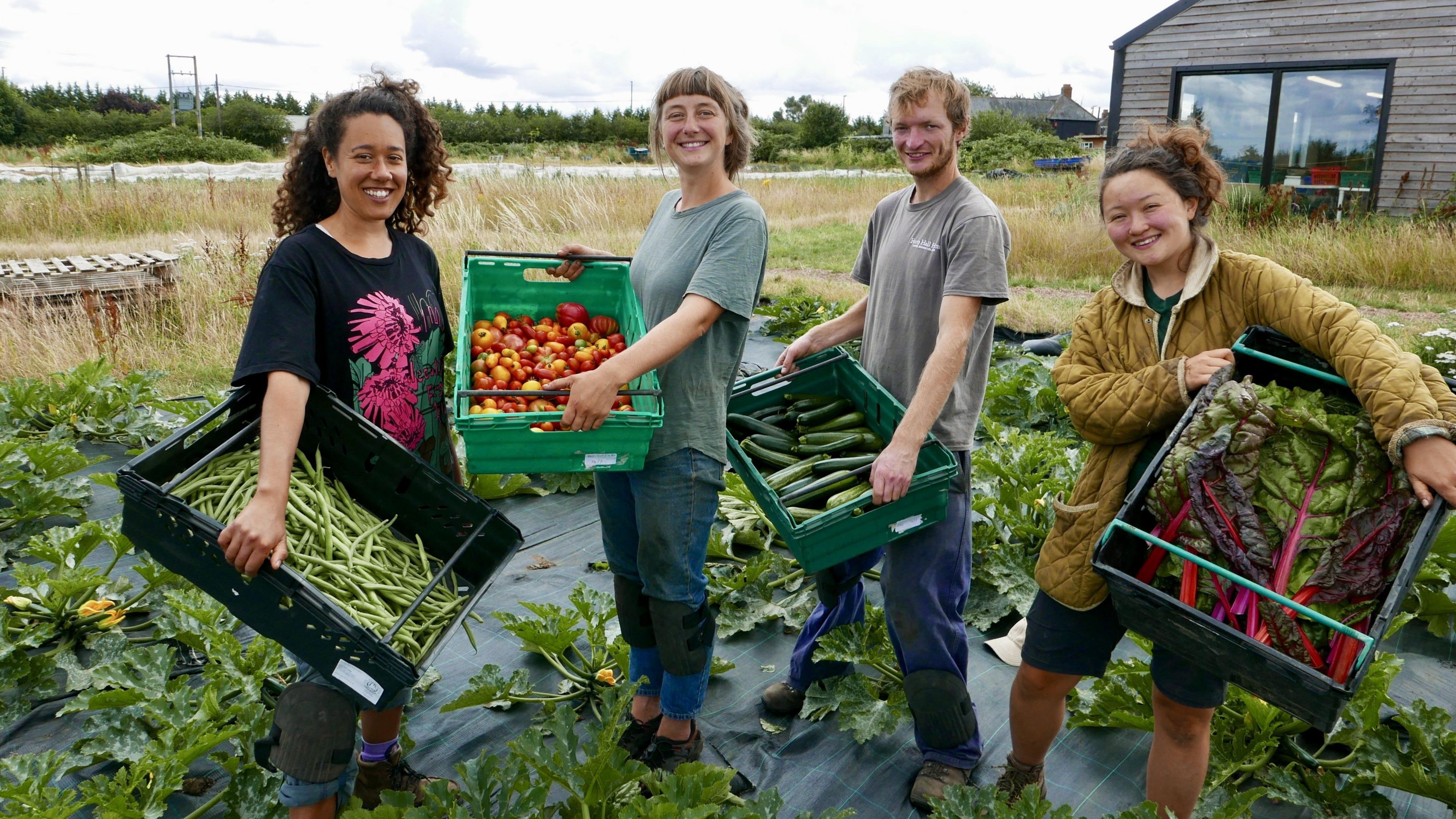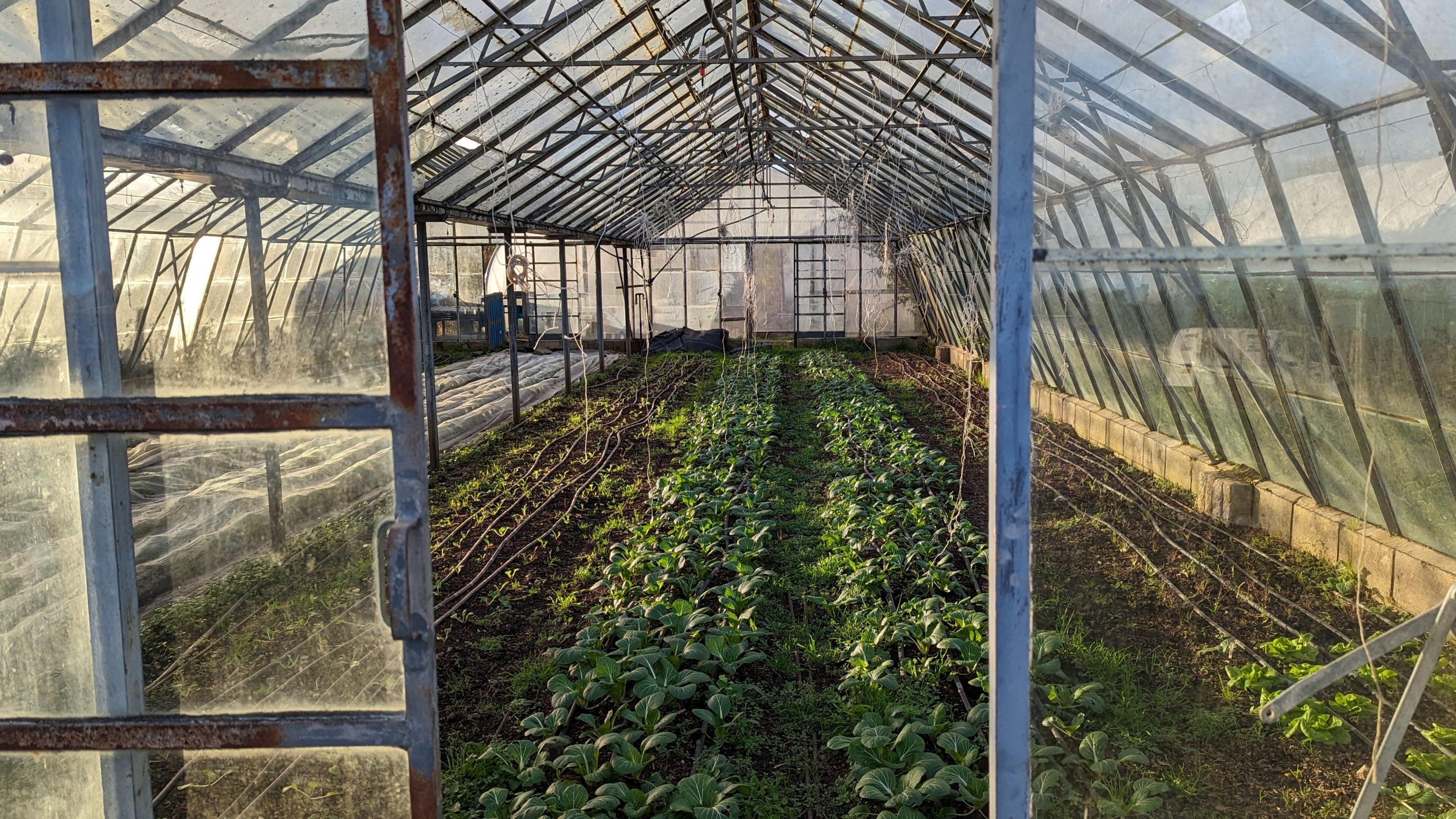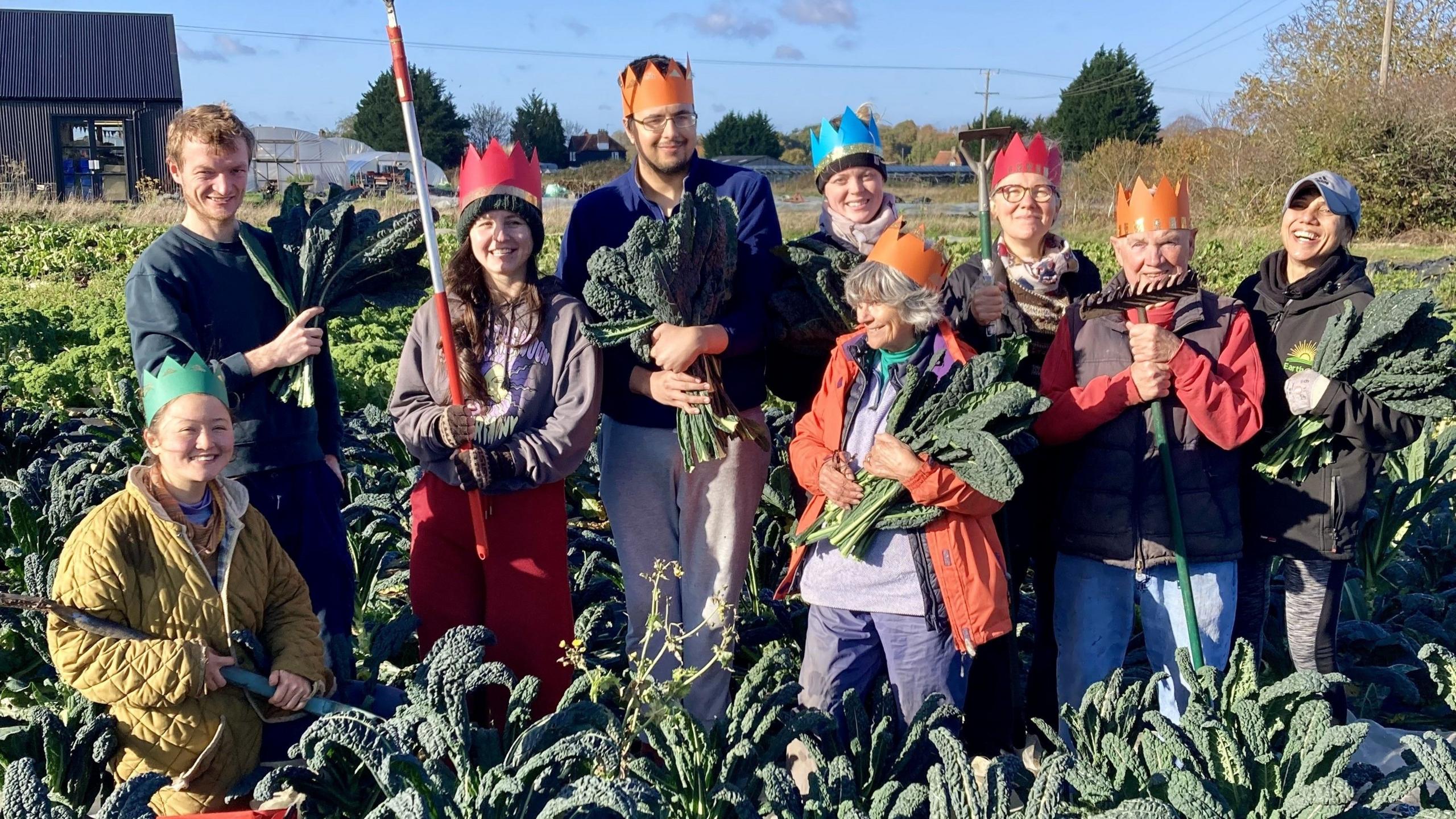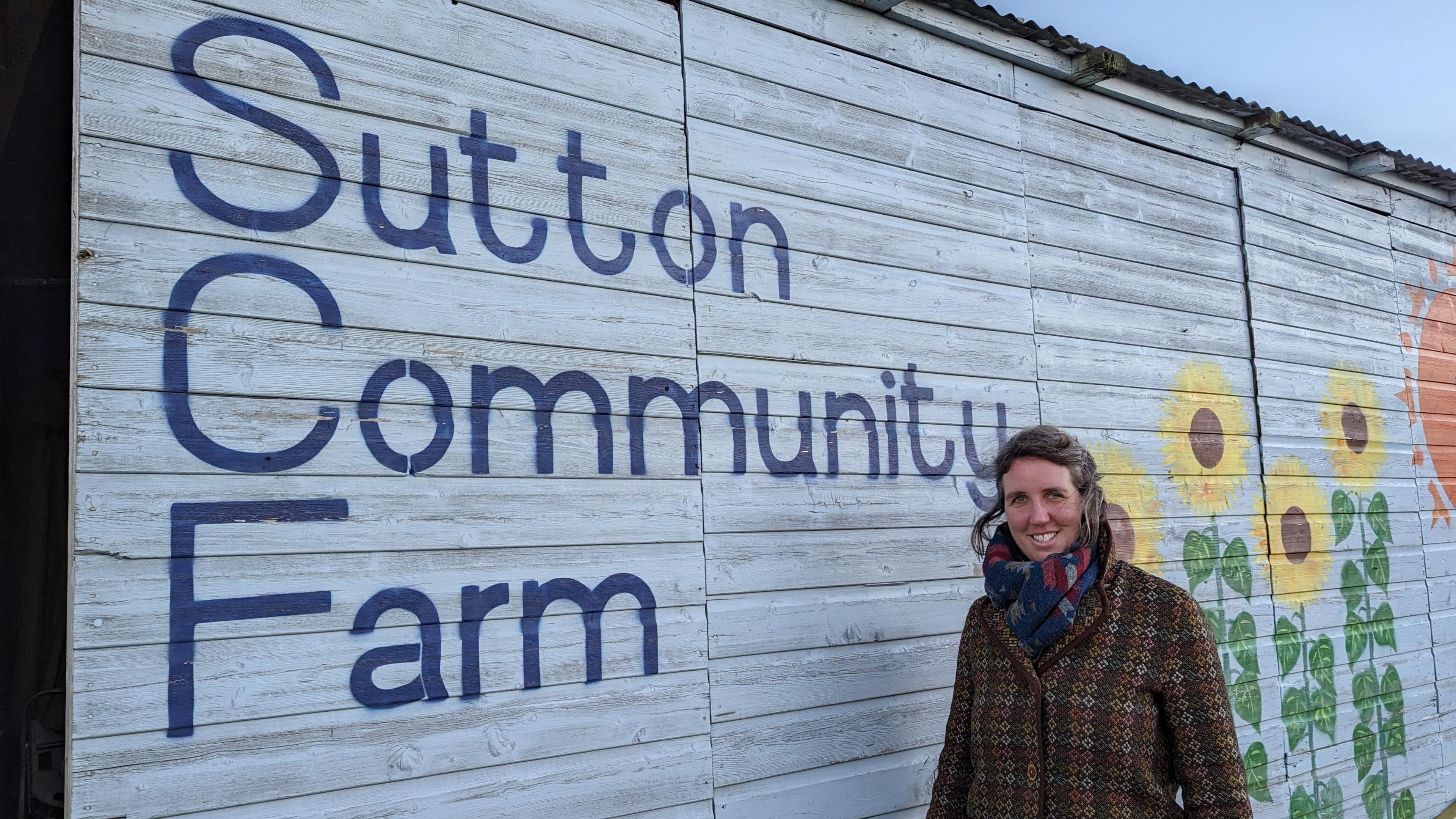London's 'forgotten farm' makes funding appeal

The not-for-profit farm is collectively owned by about 450 community shareholders
- Published
A community-owned farm in London, which saw a surge in popularity during the pandemic, has said it is now running at a "significant loss".
Sutton Community Farm has been running for the past 14 years and has gained 450 community shareholders.
It is run by seven full-time staff and other volunteers but is now appealing for more community support and council funds to keep it going.
Sutton Council said it had promoted the farm in its publications.

The farm grows seasonal produce year round in its polytunnels and greenhouses
The farm receives most of its funding from organisations including the City Bridge Trust and the National Lottery.
Sonia Cropper, head of communications at the farm, said: “Our relationship with the council doesn’t lead to much benefit to us as a community enterprise.”
She said the council had not provided any substantial support and that promises had gone unkept.
"They made some suggestions on how they could help, that they didn’t deliver on in the end," she said.
“They have digital billboards and they said they would put us on their billboards for free, but that never happened.
"We have had various meetings with their comms (communication) team.. but it never really leads to anything."

The farm holds events throughout the year
The farm volunteers and shareholders believe some of the problems stem from its geographic location.
Although it is located within the Sutton Council area, the land itself is owned by neighbouring Surrey County Council.
Boundary changes over time have left the site forgotten, by both councils, making it harder to gain traction for things like renewing leases, according to Ms Cropper.
She added: "We get it, they don’t really have the means to give us money. That’s the problem with many councils I’m sure."
In response, the council said it was a "a great supporter" of its work.
"We have been very happy to promote their amazing community work in our publications regularly over the past year,” a spokesperson added.

The community farm has been on the site outside Wallington for 14 years
The farm says its existence depends on its volunteers and community shareholders.
Dorothy said volunteering regularly at the farm had helped her.
"I enjoy the physical exercise involved and the mental stimulation in a great environment," she said.
"I feel valued as part of the farm community and that is special."
Volunteer Rohan said the farm had been the "perfect antidote against helplessness and isolation".
Neurodivergent residents can use the farmland for free as an accessible way to boost mental and physical well-being.
"We welcome autistic adults and adults with learning disabilities to get involved in farm activities each week," said Ms Cropper.
"These valued members of the farm community are supported by a trained social and therapeutic horticulturist to work together as a team doing physical tasks to suit a range of abilities."
Listen to the best of BBC Radio London on Sounds and follow BBC London on Facebook, external, X, external and Instagram, external. Send your story ideas to hello.bbclondon@bbc.co.uk, external